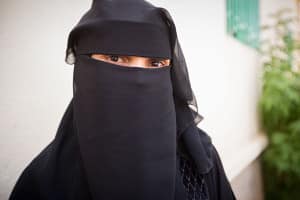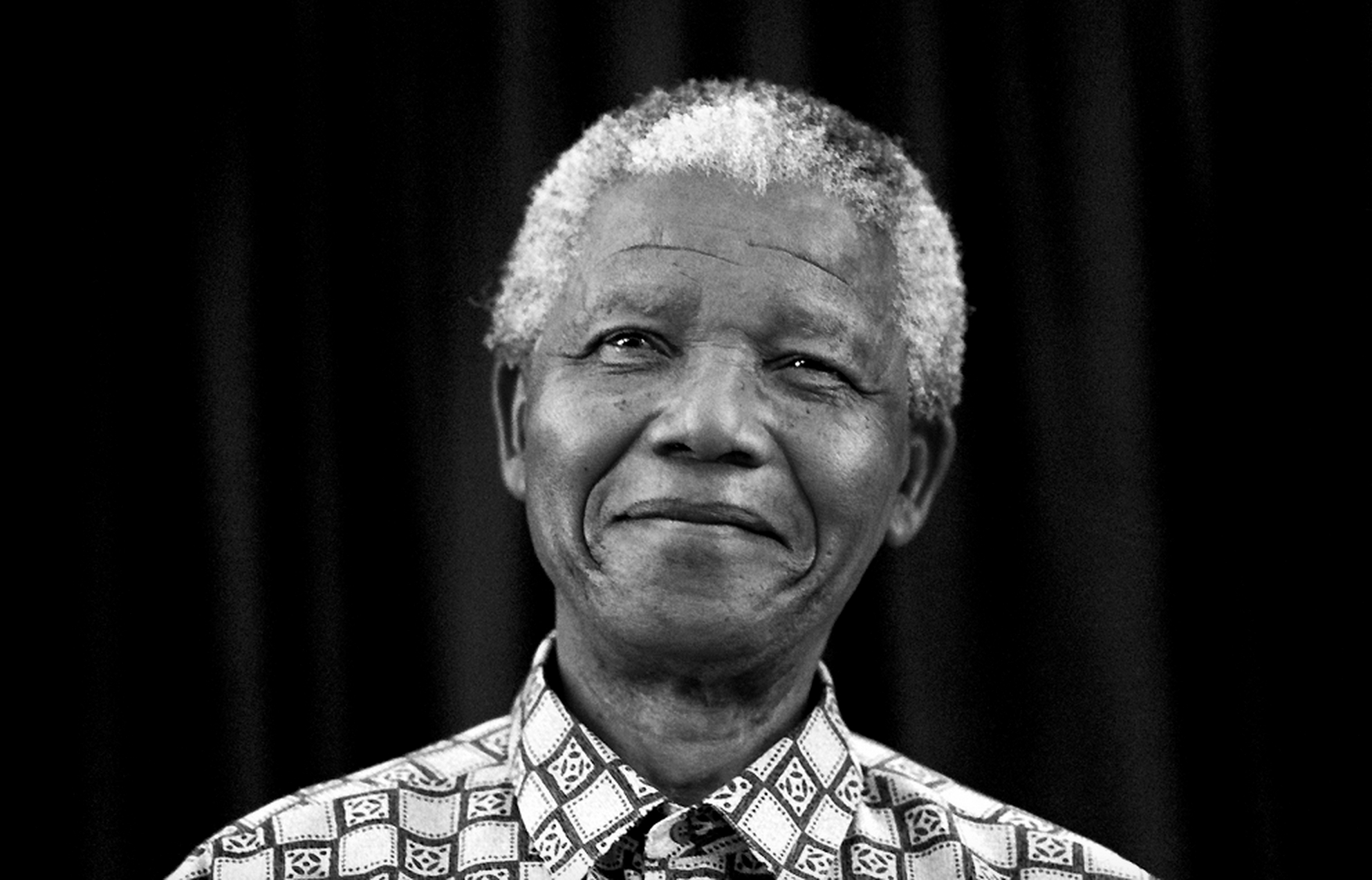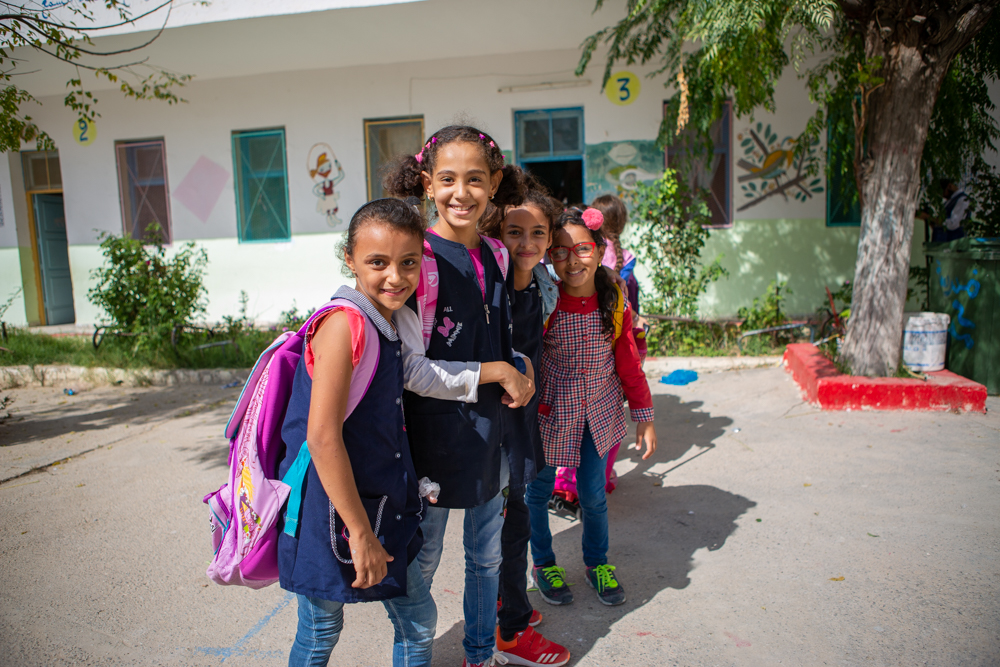A Change of Plans: Ramadan Packages for Yemeni Refugees in Hargeisa
Nada Shawish, Communications Specialist at Islamic Relief USA, reports from Somaliland.
 A woman grabs my arm to get my attention. Behind her niqab her voice elevates, “I have something to say.” She pulls me in and turns to Ridwan Adhami, Creative Director of Islamic Relief USA, who is holding the camera. “I would like to speak to you,” she says sternly into the barrel, unwavering. I am Samia …” she said, “I am 24 years old.” And she presses her abaya down to reveal a fully formed stomach. She’s pregnant.
A woman grabs my arm to get my attention. Behind her niqab her voice elevates, “I have something to say.” She pulls me in and turns to Ridwan Adhami, Creative Director of Islamic Relief USA, who is holding the camera. “I would like to speak to you,” she says sternly into the barrel, unwavering. I am Samia …” she said, “I am 24 years old.” And she presses her abaya down to reveal a fully formed stomach. She’s pregnant.
Hargeisa, a town in Somaliland, the region north of Somalia, has become a refuge from war nearly overnight for Yemeni refugees, and it’s easy to see why. We had to take a flight to Hargeisa from Somalia’s southern capital Mogadishu, and the difference between the two areas is night and day. The tension and militaristic life in fledgling Mogadishu made Hargeisa’s calm, temperate climes, less restricted movement and smiling faces feel like an oasis. One can only imagine what Hargeisa must feel like for Yemenis who have lost everything in disintegrating Yemen.
Other women gather around us and Samia, nodding their heads in agreement to what she’s telling us: how long they traveled to Hargeisa, how difficult it was, what kind of life they had before all of this happened. “I worry for the baby,” she said. “I don’t have a house here. I don’t have a hospital. My husband could not come here with me. I have just what I am wearing. We need a lot of help in this moment, even though we wish we didn’t.”
Just a few days ago, we were told there were nearly 50 families in Hargeisa, and a last minute decision was made to set aside 50 Ramadan food packages for them as emergency aid just a day before Ramadan food distributions in Hargeisa would begin.
But by the time we arrived to the distribution site, 92 Yemeni refugees were registered in Somaliland’s Hargeisa, and more families were taking the arduous journey every day: first by boat across the waters from Yemen, then with any other cheap form of transportation to get them to their chosen refuge.
Bordering Ethiopia and Djibouti, Somaliland has seen relative peace recently despite its social issues and poverty, and sees itself as a completely separate entity from larger, more unstable Somalia. It’s also inexpensive and has historically welcomed Yemenis.
Hosam is director of Yemeni refugees in Somaliland, a designation he’s earned as a Yemeni who has been living there and who has taken it upon himself to help register Yemenis fleeing Yemen as they arrive and organize help for them with local NGO’s and government authorities.

“Some families couldn’t even make it to the distribution today,” he said. “They didn’t have a car or money for transport to get here, or to take the food back to wherever they’re staying.” Solving all the issues with getting these new residents of Somaliland aid couldn’t be solved quickly enough to address the needs of every family, but Hosam is optimistic that with Islamic Relief’s support, they were going to do all they can to ensure each of the 50 packets set aside today would go to a Yemeni family in dire need.
But there’s a problem: More families came to the distribution than there’s food available. Without enough food packages donated to Somalia this year, Islamic Relief was already strained to help the number of Somalians in Somalia who needed the food this. Helping the Yemeni refugees in Somaliland was something the Islamic Relief office felt was an immediate emergency, but doing what they could to gather just 50 packages for them, Islamic Relief still had to make the difficult decision of turning people away, both Yemenis and Somalians.
Faisal is a father and caretaker for several other families who came from Yemen without the protection of fathers, brothers and uncles. He too is a Yemeni refugee. “It makes you angry that this is our life now,” he said. “You’re lucky to escape from Yemen with your skin. You see us here, now. We have nothing with us, but we are thankful to be alive and we’re trying to adjust. This food is going to help us right now. And we need to think about what we need to do right now.”
Faisal begins hurriedly helping other families with their heavy bags of flour and canisters of oil as they get handed out. “At least in Hargeisa, people can live without threat of violence,” he says.
It seems strange that one one would call Somalia a place where they could live without the threat of violence, giving a clue as to how bad things are in Yemen.
A young woman named Rahma also asks to be interviewed. “We are educated. I have an education. I can work. I’m supposed to continue my education,” she said. “We are living with other people right now. It’s so many families on top of each other in these metal shacks,” she grabs her relative, who is also well-spoken and strong voiced, “We appreciate this food, it does help us, but in the end we can work, we can go to school, we don’t want handouts we want you to help us to help ourselves again. We don’t know what to do with ourselves now without that chance.”
Blood flooded my cheeks and I could feel the anger they were feeling that was raising their voices from their guts. If ever there was a moment that I could not hold myself, this was it. These were educated women, with ambitions ripped from them. I never cry–But I stepped away to cry, and I cried hard. I faced the wall in shame–while my Yemeni sisters were standing upright at the other end of the camera to say they were able to pick up the pieces, I was crying. I tried my best to shut myself up as several young women came and placed their hand on my shoulder–to comfort me!
“Take it easy,” they said.
How should I, or you, take it easy from our comfortable Ramadan iftars, far from the reality of situations in Yemen, in Somalia, in South Sudan … I am so sorry to think there was a time I took it easy in my air-conditioned office this past year, behind the keys of my computer, in too few hours in my day that I’d inspire only 50 food packages from you, our readers and donors, to be delivered to Yemeni refugees arriving daily in Somalia.

Neither you nor I should be taking it easy when it comes to our humanitarian response. I maintain that the only justifiable position to take in these circumstances in a humanitarian one, and to fail to deliver on that position cost people their lives.
Samia’s baby will be born without its father nearby, in the sweltering heat of a metal shack far from home. Samia will be hungry and tired, and may not be able to wash herself or her newborn. Would you stand in front of her and take it easy then?
Could you look Rahma in the eyes and not feel like she was your daughter or sister? A woman who said sternly in your face: I have education, I am able. Wouldn’t you wish you had sent an extra package of food that might have helped her get on her feet again?
“I don’t want to ask for help,” Rahma interjected with Samia and others bearing witness around me after the camera had turned to collect the needs of more families. “… I just want to tell you this is our reality and situation. And please, we are able to take care of ourselves,” She presses her abaya down and shifts her feet. “This food helps some of us, so first thank you … if you could just assist us in what we should do now.”


